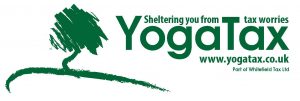Sometimes positions are advertised as “employed”, “on the books” ” PAYE” or “Payroll” – especially in gyms and leisure chains.
This means you are treated as an employee rather than self employed. What does this mean?
- There is an employment contract with the studio/gym (“engager”) This will be more precise than a self employed contract, and may have provisions preventing you from working elsewhere, or setting out working times.
- You won’t be able to claim expenses against tax in the same way (but if you are also self employed, you can probably claim most of the expenses there).
- You will have tax and NI stopped at source.
- You should be entitled to holiday pay, sick pay, and employment protection, but be aware of zero hour contracts eating into those entitlements.
- You don’t need to register as Self Employed with HMRC unless you have additional Self Employed income, eg private students or classes elsewhere.
You’ll probably find the pay rate is lower, reflecting the costs to the engager of providing holiday pay, sick pay, etc, and the additional costs of Employers NI.
The rules about whether someone is employed (aka “on the payroll”) or self employed are known as Employment Status – see our separate guide to this
Tax and NI
Possibly the biggest issue with working on payroll is if you have a Self Employment as well and consequently the integration of the two tax wise. It may help you to know:
- National Insurance is charged by source – in other words the NI you pay via payroll and your self employed NI are separate. There is a complex set of provisions for annual maximums in respect of NI, and we do mean complex – broadly don’t worry about this unless you have earned more than £50k in total.
- Income Tax is aggregated so on your Self Assessment return as well as business profits, you must also declare income and tax deducted from employment. The income from employment is aggregated with your profits from self employment, and the tax paid is offset at the calculation stage.
- People often get stressed over their “tax code” used for employment, and issues like whether their Annual Allowance is included and underpayments of tax being “coded out” – tax codes tend to be issued automatically by HMRCs computers and thus don’t always take all information into account. If you complete a Self Assessment then in many respects its academic as the Self Assessment will correct any errors, and you can call HMRC and correct your tax code if its wrong.
- Tax codes get even more complex if you have multiple jobs with or without self employment.
Read our Guide to Tax and NI when you are both Self Employed and Employed
Tax and NI when you are both Self Employed and Employed
Murky Waters
Often the decision to payroll instructors comes from Gyms and Studios – particularly larger chains – who are risk adverse and don’t fully understand the Tax and NI landscape.
Alas this leads to many anomalies, for example during the pandemic some employed Yoga teachers were told by misguided employers their employment didn’t qualify them for furlough.
Likewise some organisations have got themselves misdirected about IR35 and Employment Status and issued directives like “All Yoga Teachers working for us must have a Limited Company” or “All Yoga Teachers working for us must be on payroll” – in many instances these edicts stem from misunderstandings of tax rules.
In all it means that often the small business owner is treated unfairly and inappropriately, and often worse off. Do make sure you check the position if your treatment seems inappropriate.
Our Guide to Employment Status and IR35 covers this in more detail
Employment Status and IR35


